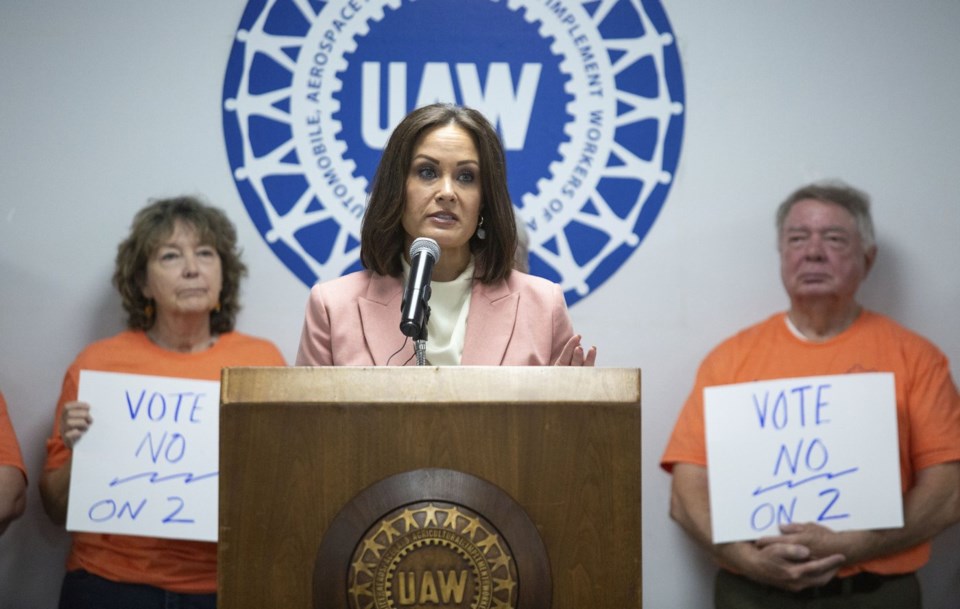LOUISVILLE, Ky. (AP) — Kentucky voters will give their verdict Tuesday on a key education issue, deciding whether state lawmakers should be allowed to allocate tax dollars to support students attending private or charter schools.
With no election for statewide office on the ballot in Kentucky this year, the school-choice measure was the most intensely debated issue of the fall campaign. Advocates on both sides ran TV ads and mounted grassroots efforts to make their case in the high-stakes campaign.
Many Republican lawmakers and their allies have supported funneling state dollars into private school education, only to be thwarted by the courts. GOP lawmakers put the issue on the statewide ballot in hopes of amending Kentucky’s constitution to remove the barrier.
The proposal wouldn’t establish policies for how the funds could be diverted. Instead, it would clear the way for lawmakers to consider crafting such policies to support students attending private schools.
A simple majority is needed to win voter approval.
Supporters include Republican U.S. Sen. Rand Paul and top GOP state lawmakers. Paul said every child deserves to attend a school that helps them succeed and said the measure would help reach that goal.
Opponents of the proposed constitutional amendment, known as Amendment 2, include public school groups and the state’s most prominent Democrats, Gov. Andy Beshear and Lt. Gov. Jacqueline Coleman. They said tax dollars allocated for education should only go to public schools.
A number of school administrators and educators from urban and rural districts warned that public schools would suffer if tax dollars are shifted to private school education. In some rural Kentucky counties, the public school system is among the largest employers.
Supporters countered that opening the door to school choice funding would give low- and middle-income parents more options to choose the schools best suited for their children, without harming public education.
Coleman pushed back against the argument, predicting that vouchers wouldn’t fully cover private school tuition and that many families couldn't afford the balance. Most voucher money would go to supplement tuition for children already at private schools, she said.
The issue has been debated for years as Republicans expanded their legislative majorities in Kentucky.
The push for the constitutional amendment followed court rulings that said tax dollars must be spent on the state’s “common” schools — which courts have interpreted as public. In 2022, Kentucky’s Supreme Court struck down a GOP-backed measure to award tax credits for donations supporting private school tuition.
Bruce Schreiner, The Associated Press


